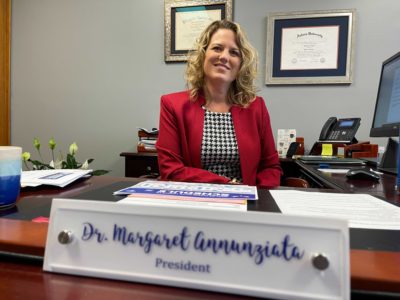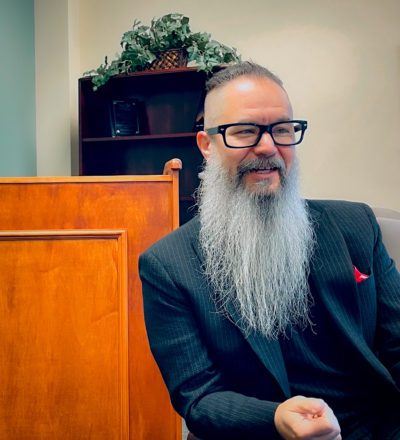
Share this story
- When Duke Energy needed to hire more qualified protective relay technicians in the western region, they called on @isothermal_edu to help build a relevant program.
- To develop a program that would meet the needs of Duke Energy, Isothermal instructor Steve Hollifield knew he needed more field experience. So he signed up to work alongside interns in substations – training with supervisors and relay technicians.
Community colleges are known for their collaborative efforts – working with industry partners to meet the demands of the workforce and providing opportunities for residents to increase their economic and social mobility.
When Duke Energy discovered they needed to hire more qualified protective relay technicians across North Carolina’s western region in 2018, representatives reached out to Isothermal Community College. The two groups met and discussed how the college could help solve the skills gap problem and reduce technician turnover.
During the initial meeting, leaders from Duke Energy indicated that protective relay technician positions in their company had an approximate annual turnover rate of 25%, said Steve Hollifield, engineering technology instructor for Isothermal. Part of the hiring challenge centered around assembling pools of qualified candidates for a very technically demanding position, he added.
Protective relay technicians are responsible for operating, troubleshooting, and maintaining power substation facilities. According to Duke Energy, candidates need an associate degree in Electronics Engineering Technology (EET) or a similar engineering technology program that would provide students with solid math skills in algebra and trigonometry.
“Our discussions that day led to (Isothermal) creating an electric utility track within our EET curriculum,” Hollifield said.
College leaders got to work designing a track that would familiarize students with substation equipment – helping them learn the operations, print reading, and relay protection schemes. Duke Energy representatives also wanted technicians to receive human performance awareness and training. Isothermal responded by embedding those principles and techniques into the courses.
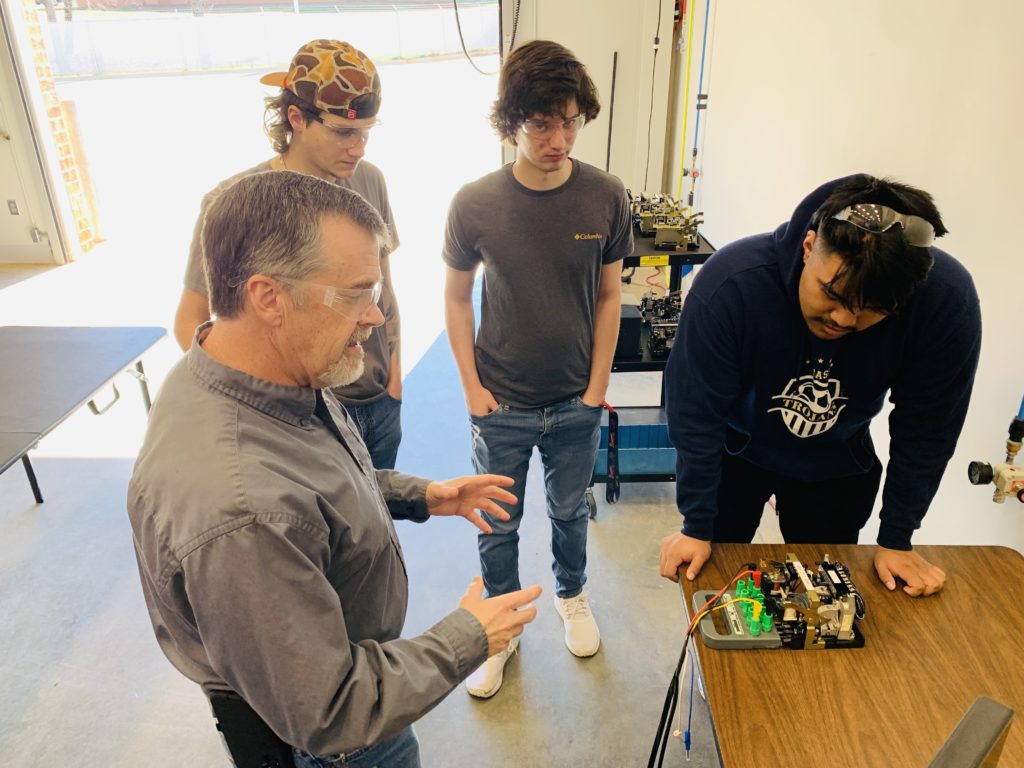
The college was committed to building a program that would benefit students and their future employers. During the development stages, Hollifield worked alongside interns, training in substations with relay technicians and supervisors.
“The field exposure has helped me tremendously in my capacity to bring knowledge, techniques, and experiences to the classroom.”
— Steve Hollifield, Isothermal’s engineering technology instructor
Isothermal graduated its first class from the program in 2019 after adding the electric utility track. Since then, Duke Energy and their contractors have hired graduates to fill protective relay and control wiring technician positions, as well as other related positions. To date, the college has credentialed 25 students.
And the graduates are being hired with competitive salaries. In less than one year, a level I relay tech can earn about $33 an hour. In less than four years, the pay for a level II relay tech is between $43 and $45 per hour, Hollifield said.
Hollifield noted that relay techs at Duke Energy typically achieve level II within four years, and with benefits and overtime, most of those individuals can make over $100,000 per year with a two-year associate degree and four-to-five years of experience.
A 2019-20 study measuring the economic impact of all 58 colleges in North Carolina found that collectively, the colleges have a $19 billion annual impact on the North Carolina economy. The study also looked at each college’s annual economic impact produced in their service areas.
Isothermal had a $112 million annual economic impact, and the net impact of former Isothermal students employed in the regional workforce accounted for $92 million in added income.
Partnering to build a workforce and empower a community
The collaborative partnership between Duke Energy and Isothermal goes beyond developing relevant courses.
Since the inception of the program, the Duke Energy Foundation has awarded funds to Isothermal as part of their Powerful Communities grants. In July 2021, the college received $30,000 to support the efforts of the program. The college received another grant of $15,000 in Nov. 2022.
Duke Energy has also donated equipment to the college, including two Siemens 100-kilovolt breakers to help train future protective relay technicians.
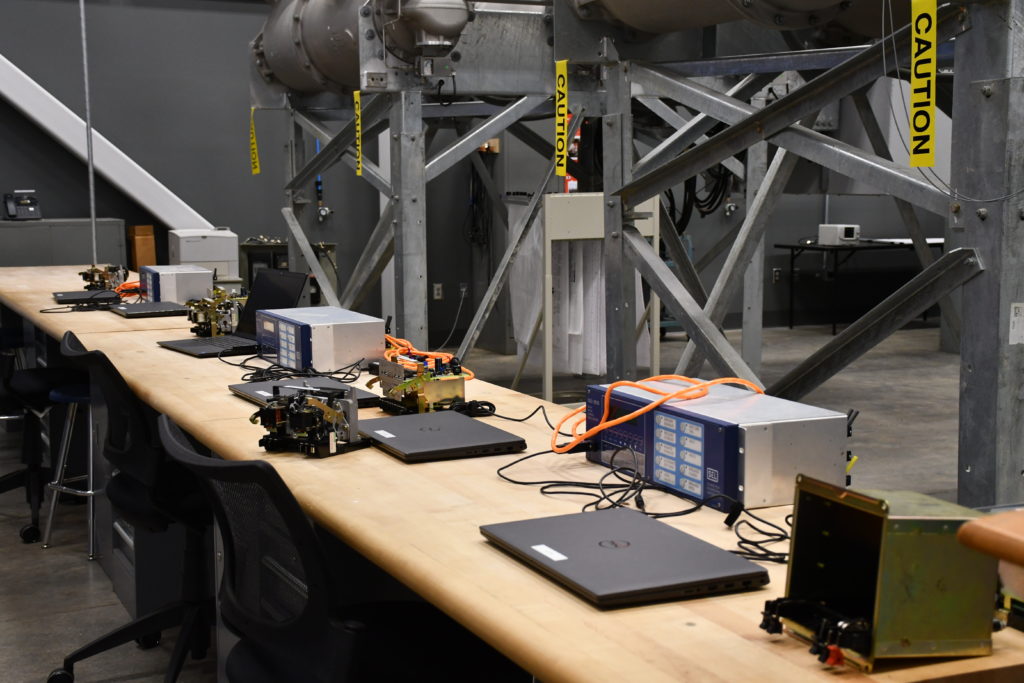
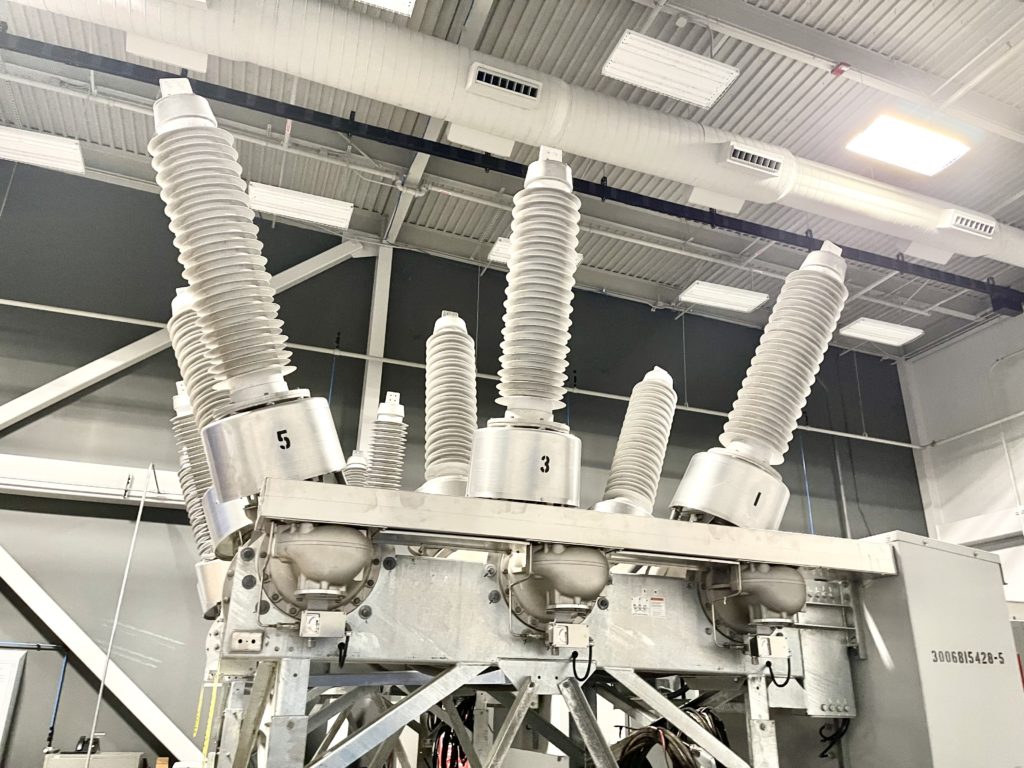
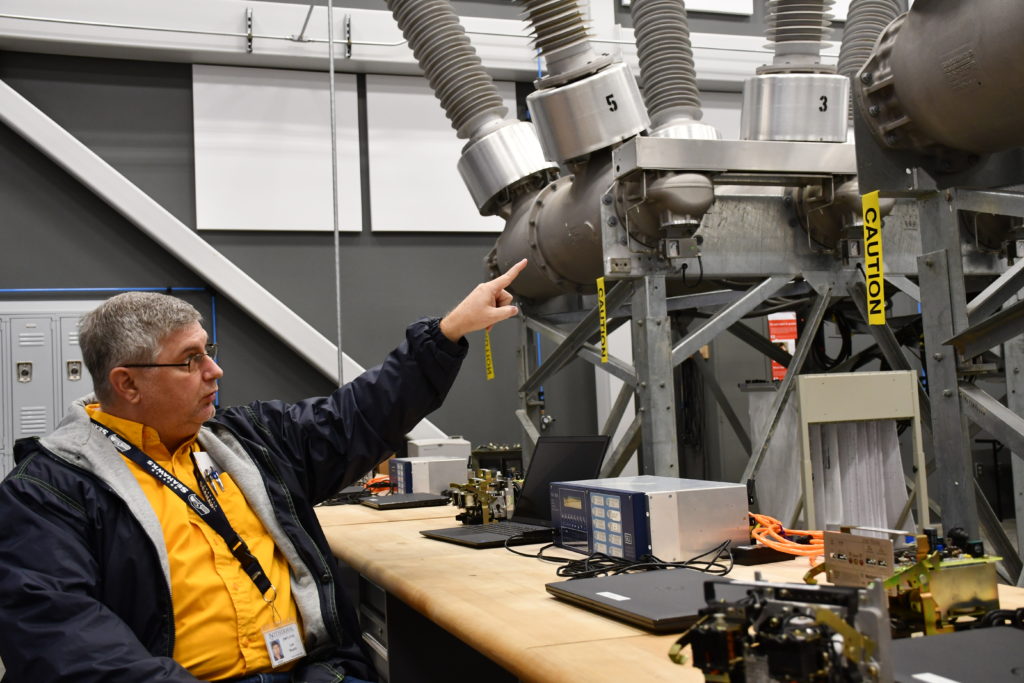
With the potential for higher wages, Isothermal’s president Dr. Margaret Annunziata said the impact of the program is significant for the community.
“It allows individuals to gain the knowledge and skills to enter and advance in the electric utility industry,” she said. “With the opportunities afforded through the program, students can excel in a career that provides significant earning potential while being integrally involved in a high impact field in our community.”
And with Powers Promise – a last dollar scholarship program for eligible residents in Rutherford and Polk counties that covers the tuition and fees for students – the program is essentially free, which offers a direct pathway to economic security, Annunziata added.
As for the future, Annunziata said the college is always examining opportunities to initiate and expand based on the needs of the community.
“This program is a powerful example of what can happen when we have the foresight to plan for the future and build programs and learning environments that prepare our local workforce not only for today but for where our community is going.”
— Dr. Margaret Annunziata, president of Isothermal Community College
Editor’s Note: Duke Energy supports the work of EdNC.



